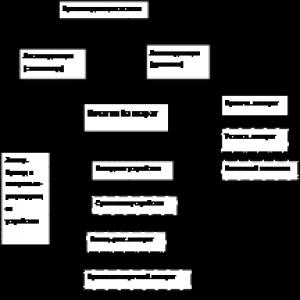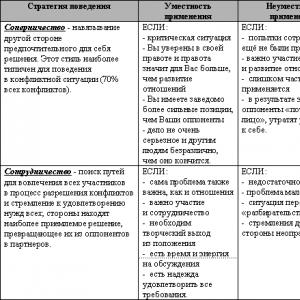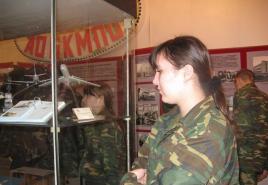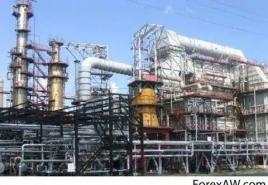Dee for a worker in the poultry industry. Who is the poultry farmer
Organization name I APPROVE
OFFICIAL
INSTRUCTIONS of the head of the organization
N ___________ Signature Explanation
signatures
Place of compilation Date
ZOOTECHNIKING FOR POULTRY FARMING
1. GENERAL PROVISIONS
1. A livestock specialist in poultry farming belongs to the category of specialists, is hired and dismissed from work by order.
2. A person who has a higher zootechnical education without presenting requirements for work experience or a specialized secondary (zootechnical) education and work experience in poultry farming for at least 3 years is appointed to the position of zootechnician in poultry farming.
A person with a higher zootechnical education and at least 3 years of work experience in the position of poultry zootechnician is appointed to the position of a livestock specialist in poultry farming of the II category.
A person who has a higher zootechnical education and at least 3 years of experience in the position of a zootechnician for poultry farming of the II category is appointed to the position of a livestock specialist in poultry farming of the 1st category.
3. In his activities, the livestock specialist in poultry farming is guided by:
— normative documents on the issues of the work performed;
- methodological materials related to relevant issues;
- the charter of the organization;
- labor regulations;
- orders and instructions of the head of the organization (direct supervisor);
- this job description.
4. Livestock specialist in poultry farming should know:
- guiding, regulatory, instructive and methodological materials related to the activities of poultry farms;
– organization of the technological process in poultry farming;
- requirements for finished poultry products;
– achievements of science and best practices in poultry farming;
— fundamentals of economics, organization of labor and management;
— Fundamentals of legislation on environmental protection;
— rules and norms of labor protection and fire safety.
5. During the absence of a livestock specialist in poultry farming, his duties are performed in the prescribed manner by an appointed deputy, who is fully responsible for their proper performance.
2. RESPONSIBILITIES OF A POULTRY TECHNICIAN
6. To perform the functions assigned to him, the livestock specialist in poultry farming is obliged:
6.1. Carry out zootechnical work at a poultry farm.
6.2. Organize the technological process at a poultry enterprise (in a workshop, on a farm).
6.3. Participate in the development of annual and long-term plans for poultry farming.
6.4. To carry out measures to increase the productivity of poultry, improve the quality of poultry products, and reduce its cost.
6.5. Carry out work to increase the business output of young animals, the safety of the poultry population.
6.6. Organize the rational use of feed, water, electricity and other material resources.
6.7. Participate in the development and implementation of advanced technology in poultry farming.
6.8. Keep records and prepare reports on poultry farming on the farm.
6.9. Monitor compliance with environmental protection legislation, norms and rules for labor protection and fire safety.
6.10. Assist and cooperate with the employer in ensuring healthy and safe working conditions, immediately inform the immediate supervisor about each case of industrial injury and occupational disease, as well as emergency situations that pose a threat to health and life for him and those around him, discovered deficiencies and violations of security labor.
6.11. Take the necessary measures to limit the development of an emergency and its elimination, provide first aid to the victim, take measures to call an ambulance, emergency services, fire brigade.
3. RIGHTS
7. Livestock specialist in poultry farming has the right to:
7.1. Get acquainted with the draft decisions of the management of the organization relating to its activities.
7.2. Submit proposals for improvement of the work related to the responsibilities provided for in this instruction for consideration by the management.
7.3. Receive from the heads of structural divisions, specialists information and documents necessary for the performance of their duties.
7.4. Involve specialists from all structural divisions of the organization to solve the duties assigned to him (if it is provided for by the regulations on structural divisions, if not, with the permission of the head of the organization).
7.5. Require the management of the organization to assist in the performance of their duties and rights.
7.6. Take part in the discussion of labor protection issues submitted for consideration by meetings (conferences) of the labor collective (trade union organization).
4. RELATIONSHIPS (COMMUNICATIONS BY POSITION)
8. Livestock specialist for poultry farming reports to the Head of auxiliary agriculture.
9. Livestock specialist in poultry farming interacts on issues included in
its competence, with employees of the following structural divisions
organizations:
- With , :
gets:
is:
__________________________________________________________________________;
- With _________________________________________________________________:
gets:
__________________________________________________________________________;
is:
__________________________________________________________________________.
5. PERFORMANCE EVALUATION AND RESPONSIBILITY
10. The work of a livestock specialist in poultry farming is evaluated by the immediate supervisor (another official).
11. Livestock specialist in poultry farming is responsible for:
11.1. For non-fulfillment (improper fulfillment) of their official duties provided for by this job description - within the limits determined by the current labor legislation of the Republic of Belarus.
11.2. For offenses committed in the course of carrying out their activities - within the limits determined by the current administrative, criminal and civil legislation of the Republic of Belarus.
11.3. For causing material damage - within the limits determined by the current labor, criminal and civil legislation of the Republic of Belarus.
11.4. For non-compliance with the rules and norms of labor protection, safety, industrial sanitation and fire protection - in accordance with the requirements of regulatory legal acts of the Republic of Belarus and local acts in _____________________.
And who can count on a salary increase Mark Bershidsky According to a December study by Hays, next year 46% of employers plan to increase their staff. 45% say that they do not plan to increase the staff, but will only deal with... 
 Only every tenth employer is satisfied with the level of training provided by higher education in Russia. Companies need to start training their own personnel, ceasing to rely on the state and universities. You can’t just become a specialist in demand on the market, although...
Only every tenth employer is satisfied with the level of training provided by higher education in Russia. Companies need to start training their own personnel, ceasing to rely on the state and universities. You can’t just become a specialist in demand on the market, although...  Opinions of employers: which employees should be disposed of in the first place Representatives of Mail.Ru Group, Aviasales, Sports.ru and other companies explain. Anna Artamonova, Vice President of Mail.Ru Group First of all, you need to get rid of toxic employees....
Opinions of employers: which employees should be disposed of in the first place Representatives of Mail.Ru Group, Aviasales, Sports.ru and other companies explain. Anna Artamonova, Vice President of Mail.Ru Group First of all, you need to get rid of toxic employees....  Amazon recruiting manager Celeste Joy Diaz talked about the biggest mistakes Amazon job seekers make. Top Google recruiters agree. They identified 3 types of resumes and advised which one is better. 1. Resume with positions. In this resume...
Amazon recruiting manager Celeste Joy Diaz talked about the biggest mistakes Amazon job seekers make. Top Google recruiters agree. They identified 3 types of resumes and advised which one is better. 1. Resume with positions. In this resume...  Imagine that you found your employee's CV on a recruiting site. What to do? Call "on the carpet" and force to delete the profile? Persuade to stay? Double your salary? Or fire the "traitor" without much thought? We asked business representatives what they...
Imagine that you found your employee's CV on a recruiting site. What to do? Call "on the carpet" and force to delete the profile? Persuade to stay? Double your salary? Or fire the "traitor" without much thought? We asked business representatives what they... This job description has been translated automatically. Please note that automatic translation does not provide 100% accuracy, so there may be minor translation errors in the text.
Preface to job description
0.1. The document comes into force from the moment of its approval.
0.2. Document developer: _ _ _ _ _ _ _ _ _ _ _ _ _ _ _ _ _ _ _ _ _ _ _.
0.3. Document approved: _ _ _ _ _ _ _ _ _ _ _ _ _ _ _ _ _ _ _ _ _ _ _ _.
0.4. Periodic verification of this document is carried out at intervals not exceeding 3 years.
1. General Provisions
1.1. The position "Poultry farmer of the 5th category" belongs to the category "Workers".
1.2. Qualification requirements - vocational education. Training. Work experience in the profession of a poultry farmer 4 categories - at least 1 year.
1.3. Knows and applies:
- structure of cage batteries and equipment in case of cage keeping;
- features of cultivation and maintenance of breeding birds;
- basic methods of selection and breeding work;
- rules and norms of labor protection, industrial sanitation and fire protection.
1.4. The poultry breeder of the 5th category is appointed to the position and dismissed from the position by order of the organization (enterprise / institution).
1.5. The poultry breeder of the 5th category reports directly to _ _ _ _ _ _ _ _ _ _ .
1.6. The poultry farmer of the 5th category directs the work of _ _ _ _ _ _ _ _ _ _ .
1.7. The poultry breeder of the 5th category during his absence is replaced by a duly appointed person who acquires the appropriate rights and is responsible for the proper performance of the duties assigned to him.
2. Description of work, tasks and job responsibilities
2.1. Carries out manual or partially mechanized work on the care of birds of the industrial herd of cage keeping, for breeding young animals, parental and selection-pedigree herds.
2.2. Feeds, waters the bird, cleans the droppings.
2.3. Takes measures to increase the productivity of poultry, feeding it with balanced feed for nutrients.
2.4. Complies with the rules and regulations of labor protection, industrial sanitation and fire protection.
2.5. Knows, understands and applies the current regulatory documents relating to its activities.
2.6. Knows and fulfills the requirements of regulatory acts on labor and environmental protection, complies with the norms, methods and techniques for the safe performance of work.
3. Rights
3.1. The 5th category poultry farmer has the right to take actions to prevent and eliminate the occurrence of any violations or inconsistencies.
3.2. The poultry farmer of the 5th category has the right to receive all social guarantees provided for by law.
3.3. The poultry farmer of the 5th category has the right to demand assistance in the performance of his duties and the exercise of rights.
3.4. The poultry farmer of the 5th category has the right to demand the creation of organizational and technical conditions necessary for the performance of official duties and the provision of the necessary equipment and inventory.
3.5. The poultry breeder of the 5th category has the right to get acquainted with the draft documents relating to his activities.
3.6. The poultry farmer of the 5th category has the right to request and receive documents, materials and information necessary for the performance of his duties and orders of the management.
3.7. The poultry farmer of the 5th category has the right to improve his professional qualifications.
3.8. The poultry farmer of the 5th category has the right to report all violations and inconsistencies identified in the course of his activities and make proposals for their elimination.
3.9. The poultry breeder of the 5th category has the right to get acquainted with the documents defining the rights and obligations of the position held, the criteria for assessing the quality of the performance of official duties.
4. Responsibility
4.1. The poultry farmer of the 5th category is responsible for non-fulfillment or untimely fulfillment of the duties assigned by this job description and (or) non-use of the rights granted.
4.2. The poultry farmer of the 5th category is responsible for non-compliance with the rules of internal labor regulations, labor protection, safety, industrial sanitation and fire protection.
4.3. The poultry farmer of the 5th category is responsible for disclosing information about the organization (enterprise / institution) that is a trade secret.
4.4. The poultry farmer of the 5th category is responsible for non-fulfillment or improper fulfillment of the requirements of the internal regulatory documents of the organization (enterprise / institution) and the legal orders of the management.
4.5. The poultry farmer of the 5th category is responsible for offenses committed in the course of his activities, within the limits established by the current administrative, criminal and civil legislation.
4.6. The poultry farmer of the 5th category is responsible for causing material damage to the organization (enterprise / institution) within the limits established by the current administrative, criminal and civil legislation.
4.7. The poultry breeder of the 5th category is responsible for the misuse of the granted official powers, as well as their use for personal purposes.
____________________________________________________________
INSTRUCTIONS
ON LABOR SAFETY No. __________
WHEN PERFORMING WORKS IN POULTRY FARMING
________________________
(place of publication)
_________________________________________________
(full name of the enterprise with indication of subordination)
APPROVED
Order _______________________
(employer position and
_____________________________
Business name)
_________________ № _________
(day month Year)
Instruction
on labor protection No. ______
when performing work in poultry farming
1. General Provisions
1.1. The instruction is intended for workers employed in poultry breeding and keeping shops, as well as those engaged in caring for poultry on poultry farms.
The instruction contains labor safety requirements for operators of the downhole shop sections, namely: receiving and electro-killing, removing feathers, evisceration, sorting, packing and packing carcasses.
1.2. Individuals who do not have medical contraindications for performing this work, who have passed the introductory and primary briefing on labor protection, are allowed to work independently by profession or to perform the corresponding type of work.
To perform work that requires special theoretical and practical training, employees must have the appropriate certificates.
Persons who have the appropriate permission are allowed to independently perform gasification work.
Persons under the age of 18 are not allowed to aerate eggs and containers.
When working with detergents, disinfectants and toxic substances, follow the safety requirements set forth in the operational documentation.
1.3. During the performance of work, hazardous and harmful production factors may affect workers.
1.3.1. Physical hazards and harmful factors:
– moving machines and mechanisms;
- products, blanks, materials that move;
- increased dust and gas content in the air of the working area;
- increased or decreased temperature of the surfaces of equipment, materials;
- increased or decreased air temperature of the working area;
– increased noise level in the workplace;
– high or low air humidity;
– increased or decreased air velocity;
- increased voltage in the electrical network, the closure of which can pass through the human body;
– increased electric field strength;
– lack or insufficiency of natural light;
- insufficient illumination of the working area;
– increased brightness of light;
– reduced contrast;
- sharp edges, burrs and roughness on the surfaces of structures, tools and equipment;
- placement of the workplace at a considerable height relative to the ground (floor).
1.3.2. Biological hazardous and harmful production factors include the following biological objects:
- pathogenic microorganisms (bacteria, viruses, rickettsiae, spirochetes, fungi, protozoa) and their metabolic products;
macroorganisms (plants and animals).
1.3.3. Psychophysiological dangerous and harmful production factors:
- neuropsychic overload - monotony of work, emotional overload;
- physical overload - static, dynamic.
1.4. Coordinate with the immediate supervisor of the work a clear definition of the boundaries of your work area.
1.5. Perform only the work that has been assigned, for which you have been instructed and for which you have received the task.
1.6. Do not allow unauthorized persons into the workplace and do not entrust your work to other persons.
1.7. Do not start work while under the influence of alcohol, drugs or medication, sick or tired.
1.8. Do not work: on faulty machines or equipment; with protective devices removed; in case of faulty control and measuring equipment and alarms, as well as in the absence or malfunction of grounding and personal protective equipment.
1.9. During manual transfer of loads, adhere to the limits for moving loads:
1.9.1. When performing work, women are allowed to lift and move loads in the queue with other work (up to 2 times per hour), the mass of which does not exceed, lift and move loads constantly throughout the work shift -. The total weight of the load that moves during each hour of the work shift should not exceed: from the working surface - , from the floor - . The weight of the transported cargo includes the weight of tare and packaging. When moving cargo on trolleys or in containers, the applied force should not exceed. The level of the working surface is the working level of the conveyor, table, machine, etc. (according to and ).
1.9.2. Limit norms for lifting and moving loads by teenagers during short-term and long-term work:
- adolescents aged 14:
- adolescents aged 15:
for short-term work: for young men -; girls -;
with prolonged work: for young men -; girls -;
- adolescents aged 16:
for short-term work: for young men -; girls -;
with prolonged work: for young men -; girls -;
- adolescents aged 17:
for short-term work: for young men -; girls -;
with prolonged work: for young men -; girls -.
Notes:
1) Short-term work is 1-2 lifting and moving the load; prolonged - more than 2 lifting and moving during 1 hour of working time specified in paragraph 5 of these standards.
2) Calendar age is defined as the number of full years counted from the date of birth.
3) The applied muscle effort when holding or moving the load using small-scale mechanization should not exceed the maximum weight of the load, its duration - no more than 3 minutes, further rest - no less than 2 minutes.
Maximum norms of the total weight of cargo for teenagers based on 1 hour of working time:
- adolescents aged 14:
- adolescents aged 15:
from the level of the working surface: for young men -; girls -;
from the floor: for boys -; girls -;
- adolescents aged 16:
from the level of the working surface: for young men -; girls -;
from the floor: for boys -; girls -;
- adolescents aged 17:
- clean the drinkers, feeders with a special tool. Collect eggs from cells with a special hook.
3.2.2. Poultry replacement:
- turn off the equipment. Hang a poster on the launchers: “Do not turn on! People are working”;
- Enlighten the premises where birds are caught with blue lamps;
- Exercise extreme caution when catching birds. Take measures to prevent injuries to the eyes, face and hands of the bird;
- when catching birds from the upper tiers of cage batteries, use mobile self-braking platforms or sliding ladders or strong, stable stands;
– when catching a bird while holding it on the floor, use movable canvas screens. Fasten the screens on special brackets built into the walls of the room. Do not attach screens to parts of process equipment, door or window handles;
– when catching birds from cage batteries, lock the cage doors in the open position. Take the bird by the legs;
- lift the container with the bird, carry it and stack it in piles or on hand carts together, coordinating among themselves safe methods of work;
- do not overload the trolleys, stack the container with the bird steadily, in a dressing, no more than high. Move the cart only away from you;
– stack bird containers for temporary storage on the floor or on a stand. The height of the stacks should not exceed, the aisles between the stacks should not be less;
- ensure the stability of the stacks and the possibility of taking containers without sorting out and damaging adjacent stacks;
- the distance between the stacks of containers should ensure free passage and deployment of a forklift (electric car). While working on an electric car (forklift), do not exceed the carrying capacity specified in the operational documentation;
– during the movement of containers with poultry and eggs by machines and mechanisms with telescopic fork grabs, ensure stable, without overloading to the side, placement of containers on load gripping devices;
- while moving the container with the bird with the help of cables, make sure that they have a uniform load;
– when transporting containers by overhead road, do not exceed their carrying capacity. Set the cableway platform to the lowest possible height from the floor;
- to load containers with poultry on vehicles without a lifting device, use strong, serviceable ladders or platforms with railings. Place the container in the body of the transport tightly, without gaps. If gaps occur, insert wooden spacers or stakes;
- if the transport is not securely fixed from self-movement, do not carry out loading and unloading operations;
- do not use random strings, ropes, cables, etc. to lift and tie boxes with birds in transport;
– do not be on a mobile vehicle loaded with free or filled containers.
3.2.3. Egg processing workshop:
– during operation, follow the requirements of the instructions for washing and disinfecting eggs and containers, for aerating eggs and containers, for servicing refrigeration equipment of the egg storage room and containers;
– perform egg handling operations in a coordinated manner, without distractions. During the operation of the egg grading machine, do not correct the punching device, do not roll out stuck eggs with your hands;
– do not allow splashing of detergents;
- put chain and belt conveyors for transporting eggs into operation after giving a prearranged signal;
- the height of storage of containers and packed eggs should not exceed;
- during the transportation of eggs and containers in mobile carts, the storage height should not be more, the load is securely fixed. When transporting containers with eggs on mobile carts, the aisles must be free. Move the cart only away from you. Do not unload containers and eggs from vehicles that are not securely fixed from arbitrary self-movement;
– before entering the gassing chamber, make sure it is completely ventilated.
3.2.4. Washing, disinfection of premises, equipment and vaccination of poultry:
– install safety warning signs at the work sites with disinfectants: “Caution! Toxic substances";
– place ladders, mobile platforms, mobile carts and the necessary tools, devices, remanent in working position;
- put on special clothes made of rubberized fabric (overalls, apron), rubber boots and gloves, goggles, a respirator. When working in a respirator, take 5-minute breaks every 30 minutes. work;
- make sure that a 2-3% solution of boric acid is available to treat the affected areas of the skin;
- turn on the equipment and the electric lighting network, except for emergency lighting; post a safety sign on the starting devices: “Do not turn on! People are working”;
- in accordance with the instructions of the specialist of the veterinary service of the enterprise, receive from the warehouse the required amount of disinfectants, detergents or vaccines;
- for the preparation of working solutions, use serviceable containers and a special remanant;
- during the preparation of the washing solution, pour the alkali into the water, and not vice versa;
– during washing, disinfection of equipment and premises or vaccination of poultry, turn on the ventilation system alternately on each side of the premises;
– do not enter the room during gassing or ventilation;
- beware of contact with detergents, disinfectants and vaccines on the skin, mucous membranes of the mouth and nose, and in the eyes;
– do not manually prepare large quantities of working solutions of toxic substances.
3.3. Hatchery work
3.3.1. Be careful when transporting to the place of unloading of hatching eggs. Do not be on the loading and unloading area while the vehicle is in motion.
3.3.2. Do not work in light shoes. Shoes should be comfortable, with non-slip soles, low, wide heels with buckles or laces.
3.3.3. Lift the container with eggs, carry and stack on handcarts with two people, agreeing among themselves on safe working methods.
3.3.4. Avoid slippery and dirty spots on the floor if eggs, etc., are accidentally dropped.
3.3.5. During cleaning, washing, disinfection of the premises, incubators, egg gassing chambers, containers, etc. use personal protective equipment: rubberized overalls (apron), gloves, rubber boots, a respirator, goggles, as well as special tools, fixtures and ladders.
When using a respirator, take 5-minute breaks every 30 minutes. work. After finishing work, make an entry in the duty log of operators.
3.3.6. The hatchery mechanic-operator must: during the maintenance of the gasification chamber for eggs and containers, constantly monitor the readings of instrumentation, the operation of the ventilation and blocking system, for the correctness of the indications of safety signs and allow workers to load and unload the chamber in a timely manner; during the maintenance of the incubators, monitor the serviceability of the incubation chambers, the operation of the electric motors, as well as the observance of the temperature and humidity in the chambers of the incubators.
Unified Tariff and Qualification Directory of Works and Professions of Workers (ETKS), 2019
Issue No. 70 ETKS
The issue was approved by the Decree of the USSR State Committee for Labor, the Secretariat of the All-Union Central Council of Trade Unions of July 19, 1983 N 156 / 15-28
Operator of poultry farms and mechanized farms
§ 49. Operator of poultry farms and mechanized farms of the 2nd category
Job Description. Sorting and grading eggs using equipment. Washing contaminated eggs in egg washers. Marking, laying and packaging of eggs. Delivery of containers to the place of packaging. Assembly of boxes and supply of packaged products to the place of stacking. Washing of equipment and premises.
Must know: technical conditions for assigning eggs to a particular category; rules for sorting, marking, packaging, storage and transportation of eggs; device and operating conditions of egg sorting and egg washing machines.
§ 50. Operator of poultry farms and mechanized farms of the 3rd category
Job Description. Trapping and placing birds in cages or boxes. Preparing poultry houses for catching birds, darkening windows, installing screens in sections of the poultry house. Carrying bird cages and loading them onto transport. Transfer of the caught bird to another workshop or its delivery for slaughter.
Must know: differences in poultry by sex and age, the production purpose of the herd; methods of catching and loading birds on transport.
§ 51. Operator of poultry farms and mechanized farms of the 4th category
Job Description. Collection of eggs from control nests with a mark on the egg of the nest number, laying hen number, date of laying. Delivery of eggs to the warehouse. Participation in the acquisition, selection and ringing of a group of birds. Culling of a bird. Sorting eggs according to the state standard. Watering and feeding poultry with fattening machines. Disinfection, irradiation and laying eggs in the incubator. Carrying out control views of eggs and culling of defective ones. Maintaining the established mode of temperature, humidity and gas exchange in incubators and the room. Moving trays from setters to hatchers. Unloading trays with young birds. Sorting and irradiation of hatched young animals. Calculation and utilization of weak young animals. Preparing crates and packing day old chicks into crates for shipment to farms. Cleaning the incubator and preparing it for a new laying of eggs, washing equipment, containers and premises. Carrying out technical maintenance of equipment and mechanisms. Conducting disinfection of premises.
Must know: technology of incubation of eggs of various types of birds in incubators of various brands, types and their design; technology of management and maintenance of technological equipment of the hatchery; methods of biological control in incubation; veterinary and sanitary instructions for hatcheries; device of disinfection installations.
§ 52. Operator of poultry farms and mechanized farms of the 5th category
Job Description. Mechanized work on the care of the adult poultry stock of the industrial flock of floor keeping, the young of the industrial herd and broilers, watering and feeding the birds. Implementation of measures to increase the productivity of poultry, feeding it with nutrient-balanced feed. Sorting, selection and culling of poultry. Egg collection and delivery. Participation in preventive and curative activities. Removing the litter. Cleaning of the premises, washing of drinking bowls, cleaning of feeders. Management of all means of mechanization. Adjustment, adjustment and minor repairs of equipment. Regulation of air exchange, temperature and humidity in poultry rooms. Performing work on accounting for eggs by nests and layers, selection by lines and breeds. Acquisition of breeding birds, weighing and laying eggs in incubation trays according to the numbers of mothers. Weighing of young and adult birds. Chick tray sampling and banding. Maintenance of established breeding documentation.
Must know: fundamentals of anatomy and physiology of poultry; technology and progressive methods of keeping young and adult poultry and rearing broilers on an industrial basis; arrangement of instruments and equipment; methods of increasing the productivity of the served poultry population; maintenance rules; basic requirements for feed rations; methods of preparing feed; norms and procedure for feeding feed; the need of the served bird species for protein, vitamins and minerals; veterinary and sanitary requirements in poultry farming; rules for conducting breeding documentation.
§ 53. Operator of poultry farms and mechanized farms of the 6th category
Job Description. Mechanized work on the care of cage poultry, breeding young and birds of the parent and breeding stock. Feeding, watering birds, removal of litter. Implementation of measures to improve the productivity and breeding qualities of poultry. Participation in promotions. Sorting eggs by breeds, crosses, lines. Separation of young animals by sex at day old with simultaneous sorting by quality.
Must know: technology of cage keeping of poultry, breeding young and selective poultry under the conditions of complex mechanization; methods of increasing the productivity of the served poultry population; arrangement and maintenance of equipment used in cage keeping; features of cultivation and maintenance of breeding birds; basic methods of selection and breeding work; signs of individual evaluation and selection of birds; main crosses of chicken lines; rules for managing lighting mechanization; fundamentals of anatomy and physiology of all types of poultry; zootechnical requirements for sorting young birds by quality and sex.
I approve ________________________________ (initials, surname) (full name of the organization, enterprise, etc., its ___________________________________ legal form) (director or other official authorized to approve the job description) "_____" _______________ 20__ M.P. Job description for the operator of poultry farms and mechanized farms of the 5th category _________________________________________________________________________ (name of organization, enterprise, etc., its organizational and legal form) this job description) in accordance with the provisions of the Labor Code of the Russian Federation, the Unified Tariff and Qualification Directory of Works and Professions of Workers and other regulations governing labor relations in the Russian Federation. 1. General provisions 1.1. This job description defines the functions, rights, duties and responsibilities of the operator of poultry farms and mechanized farms of the 5th category. 1.2. The operator of poultry farms and mechanized farms of the 5th category belongs to the category of workers. 1.3. A person who has _______________________________________ (for example, primary vocational, secondary vocational, etc.) education ____________________________________________________________ is appointed to the position of operator of poultry farms and mechanized farms of the 5th category. (without presenting requirements for work experience, work experience in the specialty is at least ____ years) 1.4. Appointment to the position of operator of poultry farms and mechanized farms of the 5th category and dismissal from it is carried out by order of the head of the enterprise in the manner prescribed by the Labor Code of the Russian Federation. 1.5. The operator of poultry farms and mechanized farms of the 5th category must know: - Law of the Russian Federation of May 14, 1993 N 4979-1 "On Veterinary Medicine", Order of the Ministry of Agriculture of the Russian Federation of May 17, 2005 N 81 "On Approval of the List of Quarantine and Especially Dangerous Diseases animals"; - basics of anatomy and physiology of poultry; - technology and progressive methods of keeping young and adult poultry and rearing broilers on an industrial basis; - arrangement of instruments and equipment; - methods for increasing the productivity of the served poultry population; - maintenance rules; - basic requirements for feed rations; - methods of preparing feed; - norms and procedure for feeding feed; - the need of the poultry species served in protein, vitamins and minerals; - veterinary and sanitary requirements in poultry farming; - Rules for maintaining breeding documentation. 1.6. The operator of poultry farms and mechanized farms of the 5th category in his work is guided by: - regulatory legal acts, as well as instructions and guidelines governing activities in the field of poultry farming; - the charter of the enterprise; - internal labor regulations; - orders and directives of the immediate supervisor; - this job description. 1.7. The operator of poultry farms and mechanized farms of the 5th category performs his labor duties in ___________________________________ (indicate the name of the department, structural unit of the organization, etc.) and reports directly to __________________________________________. (for example, the head of the organization, other official) 1.8. During the period of temporary absence of the operator of poultry farms and mechanized farms of the 5th category (vacation, illness, business trip), his duties are performed by ___________________________________. (Full name, position of the employee) 2. Functions 2.1. The operator of poultry farms and mechanized farms of the 5th category performs work on the maintenance and care of the bird, its feeding; carries out measures to increase the productivity of poultry; performs selection and accounting of poultry, chickens, eggs. 3. Job responsibilities 3.1. The operator of poultry farms and mechanized farms of the 5th category is obliged to: - perform mechanized work to care for the adult poultry stock of the industrial herd of floor keeping, young of the industrial herd and broilers, watering and feeding the birds; - to carry out measures to increase the productivity of poultry, feeding it with nutritionally balanced feed; - regulate air exchange, temperature and humidity in poultry rooms; - clean the premises, wash the drinkers, clean the feeders; - participate in preventive measures; - carry out sorting, selection and culling of poultry; - collect and deliver eggs; - perform work on accounting for eggs by nests and layers, selection by lines and breeds; - compensate for breeding birds, weigh and lay eggs in incubation trays according to the numbers of materials; - to carry out sampling from trays of chickens and banding; - carry out weighing of young and adult birds; - maintain established breeding documentation; - manage all means of mechanization; - Make adjustments, adjustments and minor repairs of equipment. 4. Rights 4.1. The operator of poultry farms and mechanized farms of the 5th category has the right: - to all social guarantees provided for by the legislation of the Russian Federation; - require the management of the enterprise to assist in the performance of their duties and the exercise of rights; - get acquainted with the local acts of the enterprise, draft decisions of the management of the enterprise relating to its activities; - submit proposals for the management of the enterprise to improve the organization and improve the methods of work performed by it; - demand the creation of conditions for the performance of official duties, including the provision of the necessary equipment, inventory, etc. ; - request personally or on behalf of the immediate supervisor the documents necessary for the performance of their duties; - Improve your professional skills. 5. Liability 5.1. The operator of poultry farms and mechanized farms of the 5th category is responsible: - for failure to perform or improper performance of their duties under this job description - within the limits determined by the current labor legislation of the Russian Federation; - for causing material damage - within the limits determined by the current labor and civil legislation of the Russian Federation; - for offenses committed in the course of carrying out their activities - within the limits determined by the current administrative, criminal, civil legislation of the Russian Federation. The job description was developed in accordance with ________________ (name, number __________________________. and date of the document) Approved by: Head of the Legal Department __________________________ __________________________ (signature) (initials, surname) "_____" ________________ 20___ Acquainted with the instruction: __________________________ __________________________ (signature) (initials, surname) "_____" _______________ 20___






